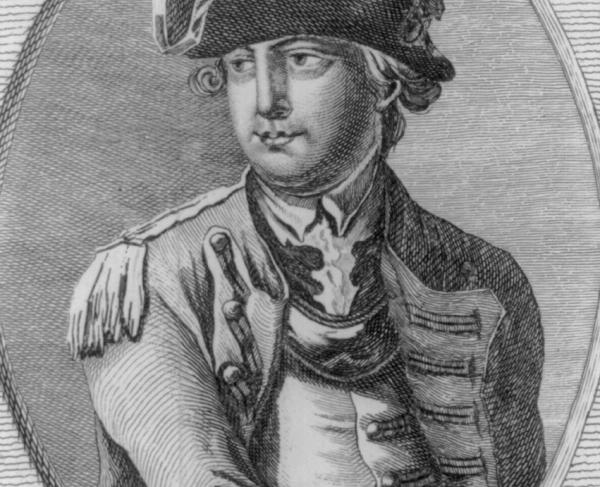Charles Lee

At the outbreak of the American Revolution, Charles Lee resigned his post in the British Royal Army to join the colonists in their patriotic cause. To Lee’s chagrin, George Washington surpassed the British-born officer as Congress’s choice for Commander of the Continental Army. Although Lee was widely recognized for his adroit military capabilities, after only a few years into the war, his reputation would be tarnished entirely.
Charles Lee was born on January 26, 1731 in Cheshire, England. As a boy, he was enrolled in military school and later served in the French and Indian War as a Lieutenant. While in America, Lee married a Mohawk woman and was subsequently adopted into the Mohawk tribe. Due to Lee’s erratic temperament, the Native Americans referred to him as “Boiling Water.”
In 1773, Lee returned to the colonies to establish a more permanent residence in Virginia. When hostilities between Britain and the American colonies erupted in 1775, all hope for reconciliation was extinguished and the two sides plunged into war. As second in command of the Continental Army, Lee was appointed head of the Southern Department. His resentment for Washington as Commander-in-Chief, however, would continue to surface throughout the war.
The Major General garnered substantial praise and admiration for his defense of Charleston in 1776. Though the victory was largely accomplished by the judgement of others, Lee was credited with the win and dubbed a hero. In the following months, Lee joined Washington in New York where the “hero of Charleston” began badmouthing his superior in written correspondences. Longing for Washington’s job and exploiting the colonists’ recent defeats in New York, Lee penned a Congressman, “Had I the powers, I could do you much good.” The Major’s efforts to undermine General Washington were disrupted when in December of 1776 he was captured by the British. As second in command, Lee was a notable prize for the enemy and his release would only come in 1778 after a British loss at Saratoga.
In May of 1778, Lee had returned to the Continental Army in time for the Battle of Monmouth. The decisive battle took place on June 28 as the Patriots pursued the British into New Jersey. Lee was ordered to lead the troops into battle and what followed proved disastrous for the general. As the British began to flank Lee’s men, the commander prematurely issued a retreat. Witnessing this, Washington confronted Lee on the battlefield and the two commanders exchanged heated words. Charged with disobeying orders and insubordination, Lee was relieved of his command and court-martialed. Congress decided to remove Lee for one year during which the ex-general proceeded to speak out against Washington.
Indeed, Lee’s sharp tongue created new enemies determined to defend Washington’s honor. In 1778, John Laurens challenged Lee to a duel and shot him in the side, wounding but not killing the officer. In 1780, Lee formally resigned from the Continental Army and retired to Philadelphia. It was there that Lee died in 1782.
Related Battles
325
381

